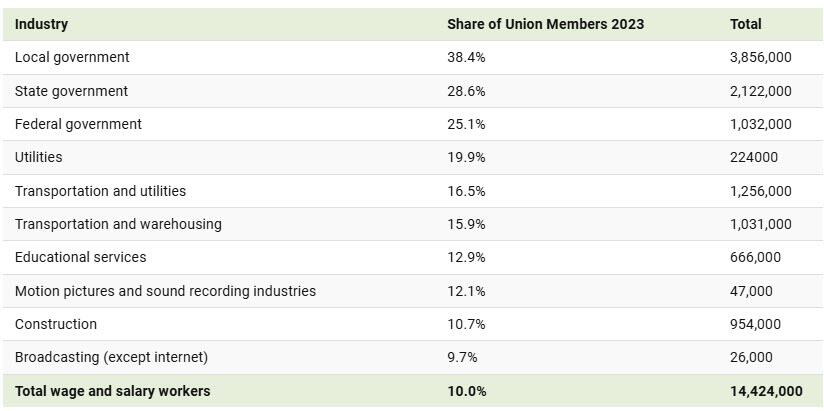Today, union membership stands at historic lows of 10%, a stark decline from the 33.5% peak seen in 1954.
Despite a surge in unionizing efforts last year, from Starbucks and Amazon to Trader Joes and Uber, national membership rates fell for the second year in a row. This was due to the rise in non-union jobs, which largely offset the 191,000 new private sector unionized jobs.
This graphic, via Visual Capitalist’s Dorothy Neufeld, shows the industries with the highest union membership rates in America, based on data from the U.S. Bureau of Labor Statistics.
As we can see in the table below, roughly a third of public sector jobs are unionized, led by the local government sector by a wide margin:
When it comes to the private sector, utilities and transportation have the highest union membership rates, both providing essential services in highly-regulated industries. […]
— Read More: www.zerohedge.com
Controlling Protein Is One of the Globalists’ Primary Goals
Between the globalists, corporate interests, and our own government, the food supply is being targeted from multiple angles. It isn’t just silly regulations and misguided subsidies driving natural foods away. Bird flu, sabotaged food processing plants, mysterious deaths of entire cattle herds, arson attacks, and an incessant push to make climate change the primary consideration for all things are combining for a perfect storm to exacerbate the ongoing food crisis.
The primary target is protein. Specifically, they’re going after beef as the environmental boogeyman. They want us eating vegetable-based proteins, lab-grown meat, or even bugs instead of anything that walked the pastures of America. This is why we launched a long-term storage prepper beef company that provides high-quality food that’s shelf-stable for up to 25-years.
At Prepper All-Naturals, we believe Americans should be eating real food today and into the future regardless of what the powers-that-be demand of us. We will never use lab-grown beef. We will never allow our cattle to be injected with mRNA vaccines. We will never bow to the draconian diktats of the climate change cult.
Visit Prepper All-Naturals and use promo code “veterans25” to get 25% off plus free shipping on Ribeye, NY Strip, Tenderloin, and other high-quality cuts of beef. It’s cooked sous vide, then freeze dried and packaged with no other ingredients, just beef. Stock up for the long haul today.




